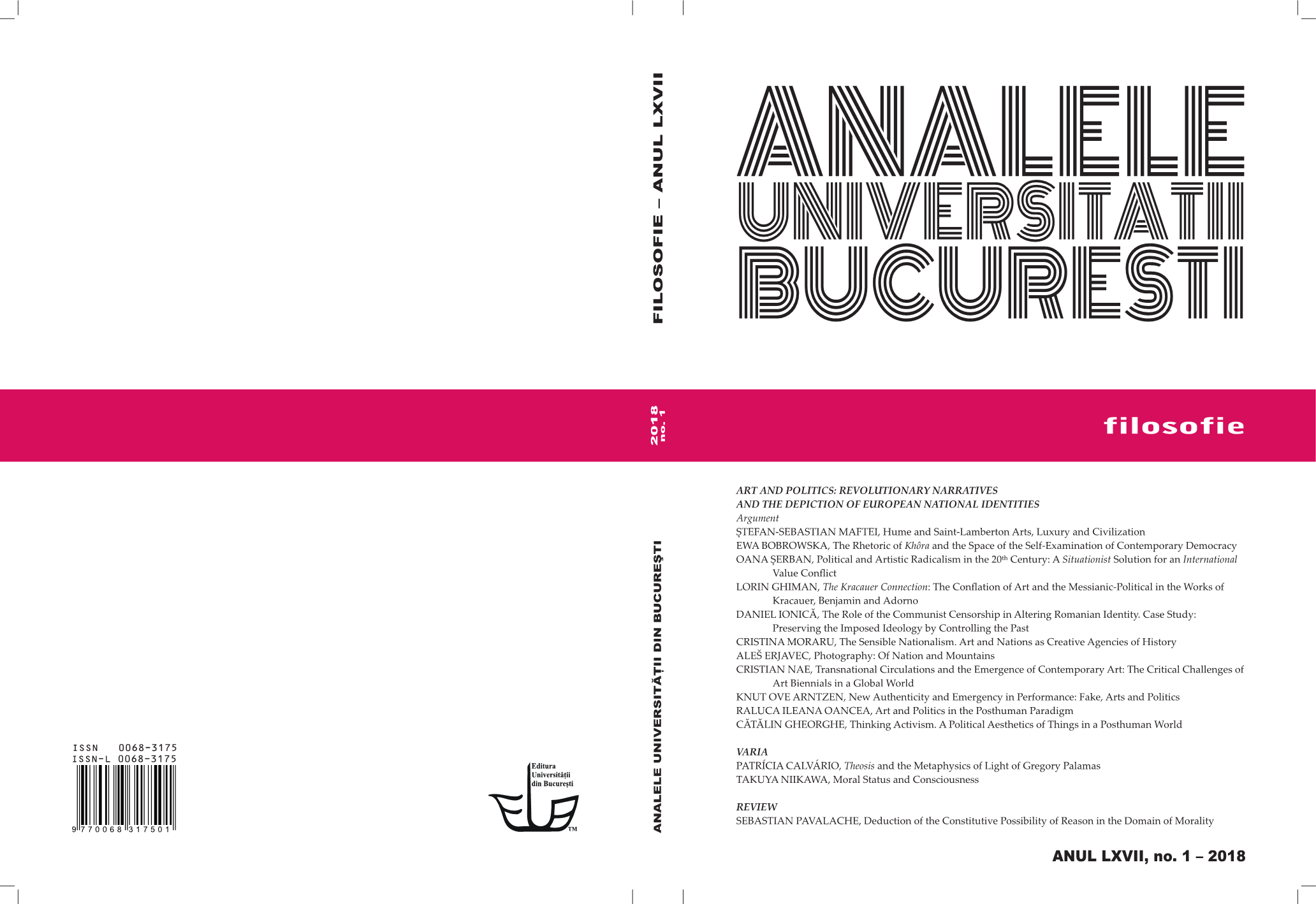The Role of Communist Censorship in Altering Romanian Identity. Case Study: Preserving the Imposed Ideology by Controlling the Past
The Role of Communist Censorship in Altering Romanian Identity. Case Study: Preserving the Imposed Ideology by Controlling the Past
Author(s): Daniel IonicăSubject(s): Politics / Political Sciences, Philosophy, Fine Arts / Performing Arts
Published by: Editura Universităţii din Bucureşti
Keywords: communism;romania;censorship;manipulation;propaganda;
Summary/Abstract: Censorship is one of the most important defense mechanisms of an ideology and the political system within a state. By controlling information sources the censors must ensure the optimal operation of the system they defend. Censorship as a social reality appeared along with the apparition of books, although institutionalized censorship occurred after the invention of printing, which gave rise to the need for such control. Depending on the type of society that created it, censorship can take various forms, from a minimal role in the case of some societies to a leading role in others. Some forms of censorship existed and still exist regardless of the ideological nature of the state we are referring to. In addition to the State’s need to restrict a society’s access to information, similar measures can come from other institutions such as social, religious or economic establishments. After the imposition of the Soviet political model in the countries of Eastern Europe, State imposed censorship marked tight control especially in the first decade of communist power. In the People’s Republic of Romania, as in the other soviet satellite-states, censorship was performed with the intention of blocking certain ideas from the reader, ideas supposed undesirable by a government which feared that its venture to create the new man in a new type of society could be disturbed by disparate forms of dissidence. Censorship in Communist Romania wasn’t only a mean to suppress ideas and retaining its hegemony, but also a way of modeling people into approved templates by the political authority.
Journal: Analele Universității din București – Seria Filosofie
- Issue Year: 67/2018
- Issue No: 1
- Page Range: 89-111
- Page Count: 22
- Language: English

